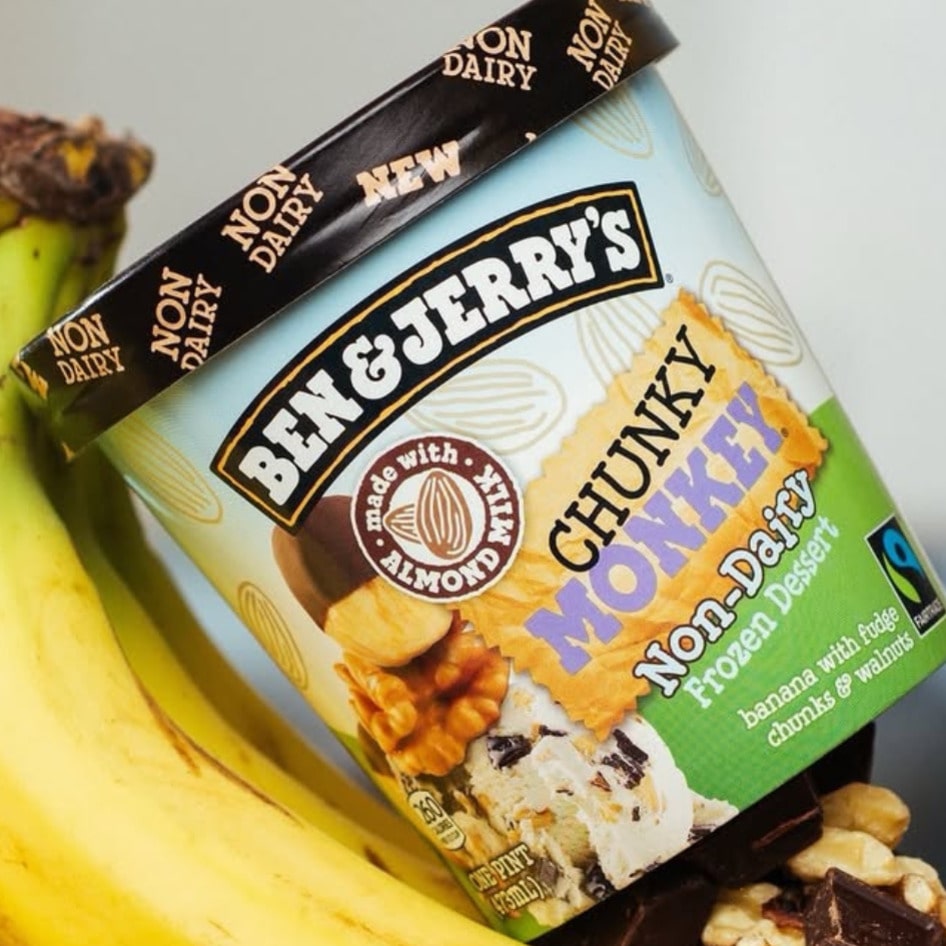5 Ways 2016 Completely Changed Veganism
Thanks to last year’s innovations, within our lifetimes we can expect to see not only many more game-changing products, but an entirely changed food system.
January 29, 2017
One of the best indicators of progress in society’s treatment of animals is how our food system is evolving. This move forward is one reason why 2016—a year that brought our food economy on a more hopeful trajectory than ever before—was so exciting. With the optimism stemming from progress in some of the most unlikely places, we figured now was a good time to look back on the past year. More than ever before, major corporations and institutions have enacted policies to abolish the worst farmed animal abuses in their supply chains, taking steps to eventually remove gestation and veal crates and battery cages from their practices. Meanwhile, people have more options than ever when it comes to what they put on their plate. Here are the top five food innovations from 2016.
1. Veggie burgers 3.0
After years of intensive research and development, 2016 finally saw the introduction of Impossible Foods’ Impossible Burger, a meat-free patty that “bleeds.” Launched at restaurants in Los Angeles, New York and San Francisco, the Impossible Burger wasn’t the only innovation in plant-based protein, as Beyond Meat also offered a bleeding vegan patty that could be found in the meat section at grocery stores across the country.
2. Life is easy
One hindrance to wider-spreading plant-based eating is convenience, but what if there were companies that could make cruelty-free living easy for everyone? Well, guess what? In 2016, there were! Lighter—which provides an online platform where people can create personalized plant-based meal plans—was introduced to the public with a lengthy feature by Forbes. The site allows customers to choose from a variety of professionals (including former professional athletes, working parents, health professions, and comedian Jon Stewart’s family) to follow their personalized dietary strategies. Another innovation last year was Purple Carrot, which sends a box to your home containing all the ingredients and cooking directions you’d need to make delicious plant-based meals. According to a New York Times feature on them this year, “The first shipment consisted of 93 boxes. Now, the company ships tens of thousands of meals from distribution centers in Los Angeles and New York.”
3. Dining halls transformed
Want to change the world? Then start with the next generation of leaders and how they eat. In 2016, The Humane Society of the United States (HSUS) conducted 61 Forward Food events and Culinary Experience trainings in which experts taught nearly 2,000 food service professionals how to create delicious and affordable plant-based meals in school districts and universities. After working with HSUS, Northwestern University hosted its second plant-based culinary training. To help meet the student demand for better options, Northwestern has implemented a station in every dining hall that is entirely plant based, launched a Meatless Monday program, and recently led an effort with the Evanston, IL, Food Exchange to end hunger in their community by educating residents on the benefits of nutrient dense plant-based foods. HSUS also worked with Villanova University in Pennsylvania to host its first plant-based culinary training and launched a program at Villanova University called VEG (Villanova Eats Great). The program encourages students to make fruit and vegetables the center of their plate and decrease their animal protein intake. The result, according to news outlet Politico, was profound: “The Humane Society of the United States is hitting the meat industry where it hurts: they’re convincing cooks to reduce the amount of meat from their menu … despite the meat industry’s efforts, the Humane Society’s message is having success.”
4. “I’m veg … and I eat meat”
That’s something I’ll soon be able to say thanks to the growth of cellular agriculture. The concept of growing animal cells—minus the animals—gained prominence with the global debut of Memphis Meats in 2016. First featured in The Wall Street Journal, the tasting of its meatball—made from growing animal cells in a lab—generated international news. The company was founded by renowned cardiologist Dr. Uma Valeti, who was inspired to make a difference for animals since he was a child in India, where he witnessed animals being slaughtered. Last year saw Valeti getting a step closer to Winston Churchill’s prediction that “we shall escape the absurdity of growing a whole chicken in order to eat the breast or wing by growing these parts separately under a suitable medium.”
5. Tyson did what?
We often hear meat companies saying they’re suppliers of protein, though sometimes they might forget that plants contain protein too. Who would’ve thought that the industry’s greatest reminder of that tidbit of information came from Tyson Foods, one of the world’s largest meat companies? Known more for chicken than chickpeas, Tyson invested enough money to garner a five-percent share of all plant-based company Beyond Meat. When the deal was finalized, Tyson’s CEO tweeted out the New York Times article regarding the announcement, stating, “Excited about the future.” His senior vice president called Beyond Meat’s new burger a “game-changing product.”
Josh Balk is Vice President of Farm Animal Protection at The Humane Society of the United States.
JUMP TO ... Latest News | Recipes | Guides | Health | Subscribe
Photo courtesy of Forbes







